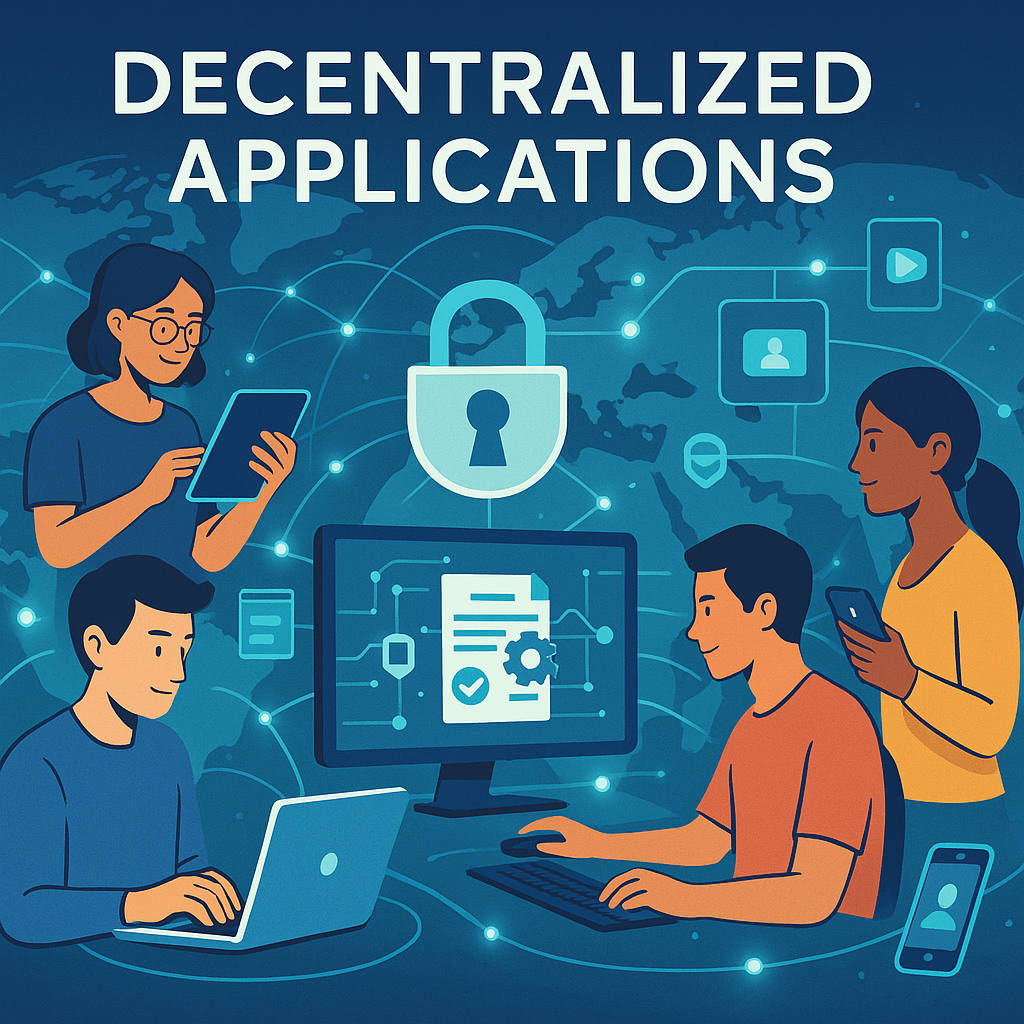Decentralized applications, or dApps, have a revolutionary impact on our internet usage. These apps rely on blockchain technology, which means they don’t need a single company or server to function. Instead, a network of computers runs them giving users more privacy, security, and control. In this blog, we’ll dive into what dApps are how they operate, and what the future holds for them.
What Are dApps?
A dApp operates without a central body in charge. Regular apps such as Instagram or Gmail, are managed by companies that control your information. dApps take a different approach—they operate on a blockchain using smart contracts (which function like self-running programs that carry out specific jobs ). Once someone launches a dApp, nobody can alter it or shut it down.
Key Features of dApps
- No Central Control: The blockchain network shares everything.
- Transparency: Everyone can view the app’s workings and check transactions.
- Stronger Security: Storing data on the blockchain makes it tough to hack or misplace.
- Token Use: Numerous dApps employ digital coins or tokens to carry out transactions, give rewards, or enable voting within the app.
How Are People Using dApps Today?
- Finance (DeFi): Apps like Aave and Uniswap allow users to borrow or trade crypto without banks.
- Gaming: Games such as Axie Infinity enable players to earn money and own in-game items.
- Social Media: Platforms like Lens Protocol give users more control over their content and privacy.
- NFT Marketplaces: Sites like OpenSea allow users to buy and sell digital art and collectibles without middlemen.
Why People Like dApps
- You’re in Charge of Your Data: What you share and make is yours—no big company owns your stuff.
- Less Middlemen: You can talk straight to others cutting costs and saving time.
- Anyone Can Join: All you need is internet access and a crypto wallet to begin.
What Are the Hurdles?
- Might Be Hard to Use: dApps can be trickier to navigate than standard apps.
- Can Run Slow: When lots of users access the app simultaneously, it might lag or cost more.
- Uncertain Regulations: Because dApps are recent inventions, laws haven’t quite caught up yet.
- Code Flaws: Mistakes in smart contracts could lead to security problems.
What’s Next for dApps?
People are pretty excited about the future of dApps. Here’s what we can expect:
- Faster and Cheaper Apps: New tech will speed up dApps and cut their costs.
- Better User Experience: User-friendly interfaces will bring more people to dApps.
- Cross-Chain Apps: Down the road, a single dApp might run on several blockchains.
- More Real-World Uses: Fields like healthcare real estate, and logistics could start to use dApps to boost their operations.
